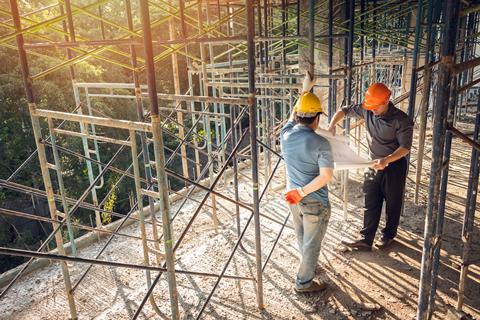It has been a year of increased scrutiny for the way companies conduct themselves and their impact on wider society, environmentally and socially. The European Parliament has taken a historic stand against single-use plastic pollution, while calls for action on global warming have never been louder, following Britain’s hottest summer on record. As social impact carves its place at the top of the business world agenda, it is clear change is not just needed; it is paramount.

The wider world does not deem the real estate industry to be the most responsible sector – an image problem we have struggled to shake. Big new housing developments often provoke local fears about potential negative implications, such as increased traffic, loss of natural space and light, noise pollution and so on. There is also a feeling that developers build more houses for profit, without considering local amenities, affordability, transport or infrastructure upgrades.
Under this heightened scrutiny, we need to ensure that the developments we create are socially useful, contribute to local economies and help transform the UK for the better, now and in the long term.
Social impact – the effect of activities on the community and wellbeing of individuals and families – is an area where the UK real estate industry could make a meaningful contribution, by building much-needed homes, infrastructure or new schools and hospitals.
The social value agenda has advanced a long way since the Social Value Act came into force in 2012. Measuring our real estate investments’ social value is no longer a consideration, or a ‘nice to have’ item, but a necessity.
Earlier this year, an expansion of the Social Value Act was announced to ensure that all government departments evaluate social value when commissioning services – a sign that the real estate industry must act now and look beyond financial return when considering investments.

The trick is to use a consistent methodology. At Legal & General, we are using the National Themes Outcomes and Measurement metric developed by the Social Value Portal to start measuring what we are doing, so we can set targets to go further. Once we identify our ‘business as usual’ baseline, the key differentiator will be on what additions each company can make, so we can improve the social value our assets bring to their community.
Looking beyond a building’s green credentials, the real estate industry needs to consider the total impact an asset could have throughout its lifecycle, from investment through the design and construction process, to the building’s impact on its end users and surrounding communities.
A study by the British Council for Offices, Legal & General and the Social Value Portal showed that in terms of the social impact of investments, the property industry could be capturing £15bn to £20bn a year of currently lost social benefit.
Social value needs to be embedded into our investment strategies
This is clearly significant. We need a sector-wide adoption of a transparent and structured framework to measure social value. Our activities will need to demonstrate high social impact as a primary consideration – not as an afterthought.
Daily struggles with planning consents and securing sites could also be relieved by a new progressive approach to social value. After all, we need to instil trust and confidence in investors, local councils and communities.
As the world watches us, it is time for action. We have the opportunity to make a real difference and create a new ethos around our investments. Social value needs to be truly embedded into our investment strategies and way of thinking. Those that fail to act now will lose out in the long term. The up to £20bn of social value the property industry fails to generate annually is significant and cannot be ignored; unlocking it will be a win-win situation for all.
Bill Hughes is head of Legal & General Investment Management – Real Assets





























No comments yet